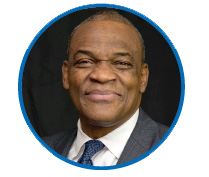| Wins, Losses - Is this All There is? |
| By: Carey Casey - CEO, National Center for Fathering
Originally Published in: Time-Out Magazine Provided by: National Association of Basketball Coaches Don't get me wrong. I was excited to be on the winning side this year, and I'm thankful that I got to be there; it was a priceless experience. But you know what? The morning after everything was over, as I was checking out of my hotel room, all the signs and banners from the Final Four were already gone. It was a clear reminder that those events were over, and it was time for life to move on. And this isn't to say there's no value or meaning in winning basketball. Success brings some great benefits for the teams, fan bases and schools. Also, I realize that coaches have to win to keep your jobs or get offers for other jobs, and fans are fickle: one year people think you're a genius, and the next year you don't have a clue. I'm sure Roy Williams knows this very well. Bigger picture: life has ups and downs, reasons to celebrate and reasons to be sad. I would urge every coach to remember-through the wins and losses, the great seasons and the last-place finishes-that this isn't all there is. As my father used to tell me, keep your poise. Don't lose your perspective on life because something did or didn't go your way. Assume that there will be good days and bad, and be a calm, unswerving force of hope and encouragement for those who are depending on you. I believe there are at least three roles you play that help you as a coach and a father through the various situations we face in life: You're an example. Never forget that you're being watched. Your players and your children notice how you respond to the victories, the challenges, and all the moments in between. You're not high one day and low the next. If you have really grasped the power and potential you have as a role model, you understand that there's more going on than simply coaching players or raising children. Every day I try to recommit myself to being a reliable, faithful example for my children and grandchildren, because it's easy to forget how powerful it is. You're a mentor. Ultimately, your influence comes down to having positive relationships. That's really what coaching and fathering are all about. It's good if your players follow your instructions out of respect, because you're the coach; it's even better if they do it because they trust you and they know you care for them as individuals. You're willing to listen. You'll admit when you're wrong. Through whatever challenges and changes come along, they can count on you to be there for them. You're an overcomer. As an adult with a few years behind you, you have lots of life experiences that have become learning opportunities for you. You've been through your share of defeats, and you've learned that you can bounce back and be better next time. You've endured trials that made you stronger. Maybe you've seen that good can come even from suffering. Those experiences prepared you for this role, and now you can lead your team-by your example and your mentoring-through whatever difficulties may arise, on and off the court. You can use the hard times to help them grow. Coach, be ready to celebrate when it's appropriate. Know that there may be times of great disappointment as well. Keep your poise, and be that steady influence your players need.
Carey Casey is CEO at the National Center for Fathering (NCF) and author of Championship Fathering. He is married with four children and nine grandchildren. The vision of NCF is to have an actively engaged father or father figure in the life of every child. See more articles and resources for dad at www.Fathers.com or contact NCF at Dads@Fathers.com. |








